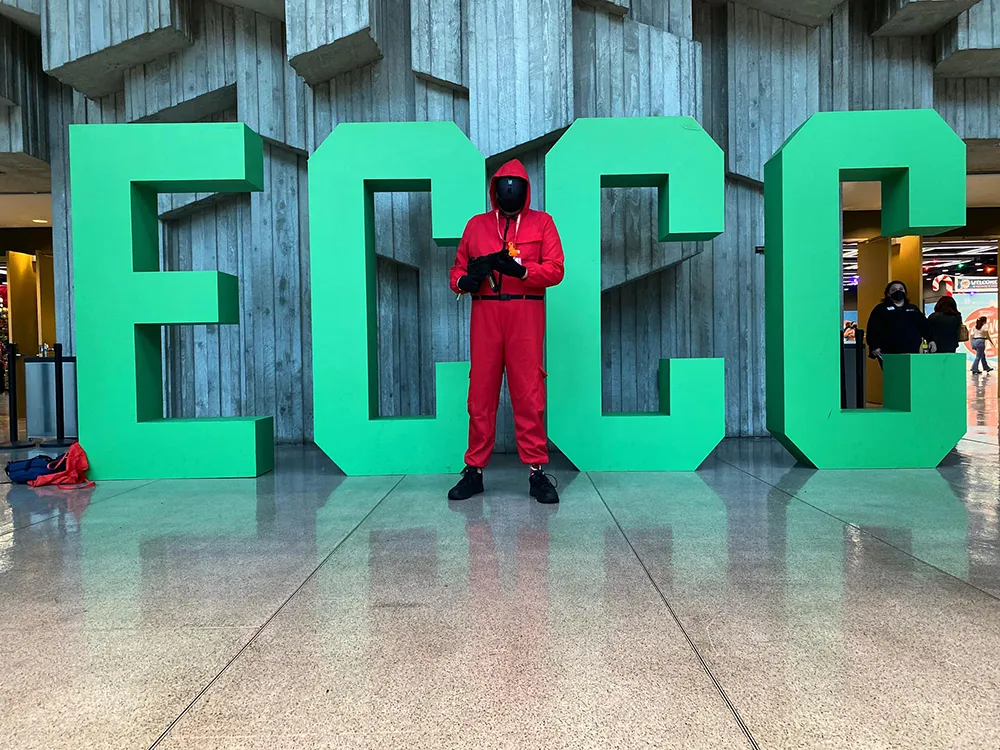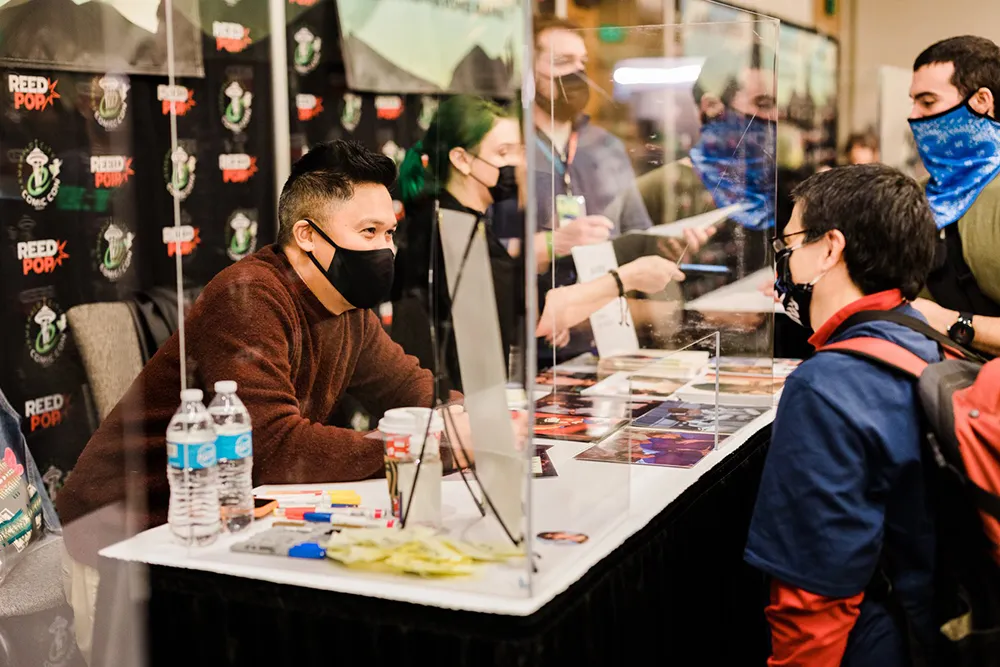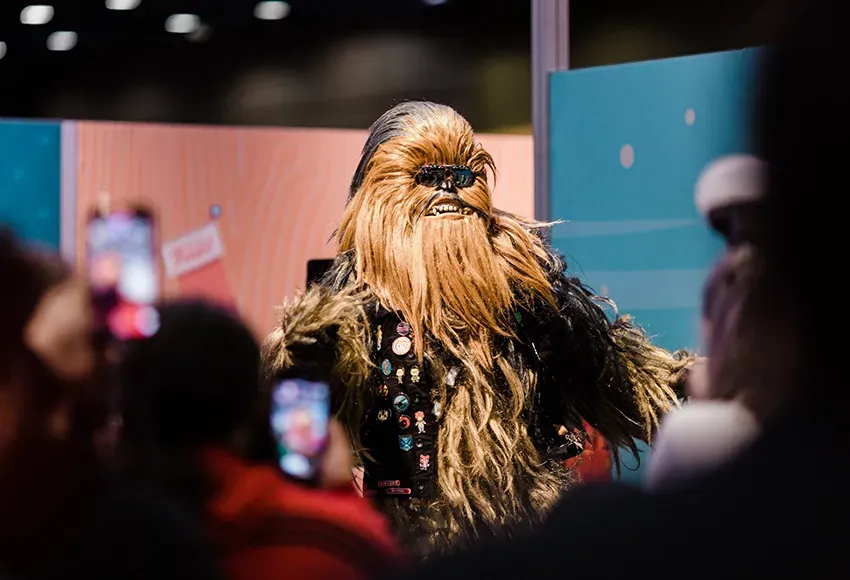Stepping out of Westlake Station, I traveled back in time. Jedi walked beside stormtroopers. Bane, one of Batman's nemeses, waited at a crosswalk with an emerald-green tote bag. Two Princesses Peach ordered hot dogs from a roadside stand. From Thursday, December 2, through Sunday, December 5, fans and artists of all kinds were gathering for the first in-person Emerald City Comic Con in two years.

The familiar tension of the pandemic was present, even with masks and proof of vaccination. People gave each other a wide berth, space allowing, and I heard (and used) the same beat in many conversations: everyone there was readjusting, after being shut inside for months on end.
In light of the pandemic, I was impressed by the turnout. The crowding wasn't as bad as at conventions I'd attended before–like Fanime in San Jose, or Wondercon in Anaheim–but that was a welcome change and a planned safety measure. Even with attendance cut in half, there were enough people there to keep the sizable Washington State Convention Center lively from morning to evening each day.
I was not as impressed by the lineup of specifically LGBTQ+-oriented panel discussions, which seemed sparse compared to the proportion of Queer artists and fans attending. Maybe I overestimated that proportion, since I was there looking for Queer attendees anyway, but during the four days of the convention, only one panel was explicitly intended for discussing LGBTQ+ topics in popular media.
The panel in question, "Queering The Wheel of Time," was about the popular and lengthy fantasy series by Robert Jordan. I had never read the books, nor had I watched the new Amazon TV show, but the five panelists were all deeply knowledgeable superfans–and Queer, to boot. The enlightening discussion compared the books to the show, and it criticized and complicated the rigid gender binary of the series' cosmology. I only wish the convention had had more panels like it.
Mind you, there was certainly LGBTQ representation on the guest list. Nebula Award–winning author Cat Rambo, who uses they/she pronouns, was part of a panel about "finding your people" through speculative media. Also presenting was Trans author Charlie Jane Anders, and the Queer authors Julia Ember, Margaret Owen, and Zoe Hana Mikuta ran a panel on how to write good YA fiction. That all counts for a lot.
But I found some of the convention's strongest LGBTQ presence in Artist Alley, which took up two and a half ballrooms on the fourth floor. I went to any booth that featured Pride flag merch, art by Queer couples, or any artist I knew to be Queer through prior research and checked in with the people there.

For some of the vendors in Artist Alley, art was their only job, whether through traditional publishing or self-publishing combined with crowd funding. Others weren't quite there yet, but the convention was a big opportunity. In every case, their talent floored me, and now, with a stack of business cards (and a pile of neat stickers), I hope to bring some of these artists' work the attention it deserves.
It's hard to say what next year's ECCC will look like. Our only constant during the pandemic seems to be uncertainty. But in the words of William Strunk Jr., "Writers will often find themselves steering by stars that are disturbingly in motion." As for fans, they can hope conditions allow for another convention like this one next year.


